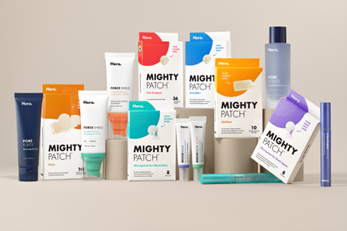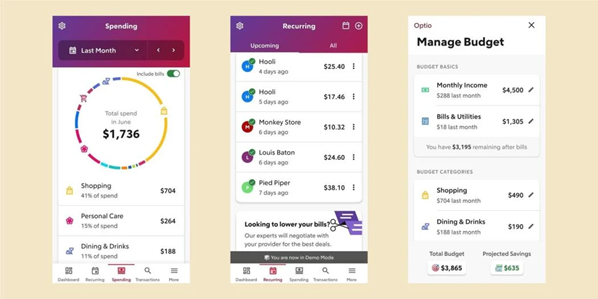Blog
From myth to insight: What brands must know about Gen Z
Uncover the truth about Gen Z and learn how to connect with this values-driven, tech-savvy, and pragmatic generation.


Crystle Uyeda
28 November 2024
4 min read
Whether you’re watching TV, walking around the mall, or browsing social media; Gen Z is everywhere. Born between 1997 and 2012, this generation is reshaping norms and becoming one of the most influential in history.
Growing up amid major global events like 9/11, the 2008 recession, the climate crisis, and a pandemic, Gen Z is resilient, resourceful, and ready to challenge the status quo. Brands are taking notice and crafting strategies tailored to this powerhouse demographic. But marketing to Gen Z requires more than trendy campaigns; it demands genuine listening and action. Let’s bust some common myths to help you connect with Gen Z authentically.
Meet Gen Z, beyond the stereotypes
Myth 1: Gen Z is not as engaged in the workplace
Reality: Having witnessed the struggles of previous generations, Gen Z values flexibility and is redefining how they approach education and work. In fact, 75% of Gen Z prefers to work in a hybrid or fully remote work environment and 53% earns additional income from a side hustle. They value a well-rounded life, not just a 9-5 job. Further proof of that, 51% say it is more important to do meaningful work than to earn a high salary. Brands must foster inclusive, adaptable workplaces to attract this forward-thinking workforce. Google is a great example of this type of progressive working culture – offering an all-encompassing wellness program both inside and outside of the physical office. That includes on-site fitness centers, cooking classes and free employee meals, as well as full medical insurance including mental health services.
Myth 2: Gen Z is addicted to technology
Reality: While technology is woven into their lives, Gen Z knows when to unplug. Growing up with constant access to social media, they are aware of its impact on mental health and are setting boundaries. 58% wants to reduce their screen time, and 36% wants to limit their smartphone use. Many are even switching to minimalist ‘dumb phones’ which only have the basic features such as calling, texting and taking pictures. To resonate with this group, brands must balance their online presence with real-world value. Heineken, for instance, collaborated with Bodega to launch ‘The Boring Phone’, encouraging people to enjoy better real-life connections on nights out by disconnecting from their smartphones.

Myth 3: Gen Z is superficial & not loyal to brands
Reality: Gen Z seeks authenticity in brands and is loyal to those that align with their values. In fact, 61% care about inclusivity and 53% believe it’s important that brands give back to society. But they’re not blindly loyal – they hold their values close to their hearts and their wallets. To win the loyalty of these consumers, brands must establish their corporate values and demonstrate them in an authentic way. Skincare brand, Hero, has won the loyalty of Gen Z consumers through their mission of empowering people to be their best selves through approachable skin solution. From their product development and design to their advertising, they have created an inclusive and inspiring brand that Gen Z can rally behind.

Myth 4: Gen Z is overly idealistic and unrealistic
Reality: While Gen Z has strong values and ideals, they are also pragmatic. This generation grew up in a world full of uncertainty, so they know how to navigate complex realities. When it comes to finances, for example, they balance idealism with practicality. Many prioritize financial stability with 62% trying to save money they earn/receive and 34% following influencers for financial advice. Brands – especially those in the financial services industry – should realize that while Gen Z has big aspirations, they are realistic, and they are not going to put their money or energy into products or services that aren’t fulfilling on their needs. Effective marketing to Gen Z is about helping them balance ideals with practical solutions. For example, Rocket Money, a personal financial planning app, is designed to empower users to take financial planning into their own hands by creating spending categories that fit their needs and lifestyle rather than pre-determined fields.

Myth 5: Gen Z is carefree about parenthood
Reality: Gen Z approaches parenthood with intention, viewing it as a personal choice rather than a societal expectation. Many delay starting a family to achieve financial stability and personal freedom, while others opt out altogether. For those who do become parents, their approach is flexible and adaptive, often referred to as “mix-and-match” parenting. Our recent report ‘Inside the Gen Z parental mind’ shows how they blend different philosophies, adapting to their children’s evolving needs. Gen Z parents focus on fostering independence and emotional growth, preparing their children for life’s challenges rather than shielding them from adversity. This also comes with high expectations of brands. For them it’s not enough for a brand to excel in just one area; they demand that brands perform well across multiple fronts. They look for a brand that C.A.R.E.S. – focusing on credibility, affordability, being right for me, enhancing emotional connections and sparking joy. See our Gen Z parenting report for further insight into this.
The stakes for capturing Gen Z’s market share are higher than ever. Capturing Gen Z’s attention and loyalty has never been more critical, or more challenging. The tried-and-true strategies of the past simply don’t resonate with this dynamic generation. For Gen Z, authenticity, flexibility, and meaningful engagement are non-negotiable. To build real meaningful connections, brands must understand and act upon what truly matters to them. So, is your brand ready to meet the Gen Z standard?
REPORT
Inside the Gen Z parental mind
Get to know Gen Z parents and their expectations of brands.
Request your free copyReady to do what matters?
Let’s connect

